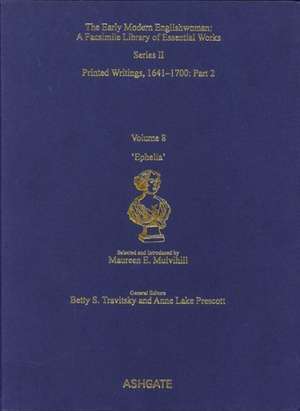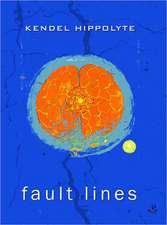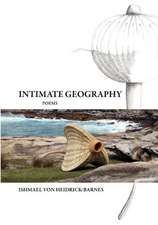'Ephelia': Printed Writings 1641–1700: Series II, Part Two, Volume 8: The Early Modern Englishwoman: A Facsimile Library of Essential Works & Printed Writings, 1641-1700: Series II, Part Two
Autor Maureen E. Mulvihillen Limba Engleză Hardback – 28 apr 2003
Preț: 496.94 lei
Preț vechi: 665.63 lei
-25% Nou
Puncte Express: 745
Preț estimativ în valută:
95.09€ • 99.29$ • 78.52£
95.09€ • 99.29$ • 78.52£
Carte tipărită la comandă
Livrare economică 15-29 aprilie
Preluare comenzi: 021 569.72.76
Specificații
ISBN-13: 9780754608394
ISBN-10: 0754608395
Pagini: 160
Dimensiuni: 189 x 246 mm
Greutate: 0.45 kg
Ediția:1
Editura: Taylor & Francis
Colecția Routledge
Seria The Early Modern Englishwoman: A Facsimile Library of Essential Works & Printed Writings, 1641-1700: Series II, Part Two
Locul publicării:Oxford, United Kingdom
ISBN-10: 0754608395
Pagini: 160
Dimensiuni: 189 x 246 mm
Greutate: 0.45 kg
Ediția:1
Editura: Taylor & Francis
Colecția Routledge
Seria The Early Modern Englishwoman: A Facsimile Library of Essential Works & Printed Writings, 1641-1700: Series II, Part Two
Locul publicării:Oxford, United Kingdom
Cuprins
Contents: Preface by the General Editors; Introductory note; A poem to his sacred majesty, on the plot, written by a gentlewoman (1678); A poem as it was presented to his sacred majesty, on the discovery of the plott, written by a lady of quality (1679), with an enlarged image of the poem's woodcut initial; Female poems on several occasions. Written by Ephelia (1679); Advice to his grace (c. June, 1681); Appendices: Appendix A. Two portraits of Lady Mary Villers, by Sir Anthony Van Dyck (c. 1630s); Appendix B. 'A funerall elegie on Sr. Thomas Isham Barronet' (c. 9 August 1681; Nottingham Library), with an enlarged image of the manuscript's armorial watermark and the volume editor's unedited transcription; Appendix C. Title page, Female poems on several occasions. Written by Ephelia. The second edition, with large additions (1682).
Recenzii
'Ephelia now takes her clear place in the Age and the canon, and remains a symbol for all those contemporary women writers... Some Ephelia scholars have wondered if she was a man, or a group of men and women, hiding behind not just a pseudonym but a skirt. One of the few who did not give up on the mystery is Maureen E. Mulvihill of the Princeton Research Forum... It seems just that Mall Villiers will now get her due, and be rightfully acknowledged, thanks to Mulvihill, in such official places as the authoritative ESTC (now online, for library subscribers).' Today In Literature website 'This pseudonymous poet, songwriter, and playwright of late-seventeenth-century London has been the subject of a longstanding and hotly contested debate in the academic community ... In the judgment of some bibliophiles and area specialists, the Villiers case for ’Ephelia’ is an exciting new attribution in the canon of early-modern English poetry, and Mulvihill is to be commended for enviably cracking such a complex case, owing to her broad multimedia methodology.' Seventeenth-Century News, now online 'The [Villiers] attribution has been accepted by all standard reference sources and has had no serious printed counter-identification.' The Orlando Project, online, 'Ephelia' chapter, 'Overview'. Cambridge University Press, 2010 ’The subject of Ephelia authorship has been the subject of extensive scholarly debate, which has yielded intriguing results, if not a highly probable identification.’ Reading Early Modern Women (Routledge, 2004) p362 ’Several poems by the anonymous Stuart poetess known as Ephelia (whose works were published in 1679 as Female Poems... by Ephelia’) were dedicated to her [Mary Villiers], and it has been established in the last decade by Maureen E. Mulvihill of the Princeton Research Forum, NJ, that Ephelia was in fact Lady Mary herself. This poet produced an intriguing set of texts, some privately printed, being bold political broadsheets agai
Descriere
This facsimile edition reproduces the extant works of the seventeenth-century poet, 'Ephelia'. The identity of 'Ephelia' continues to be debated. In her Introductory Note, Maureen Mulvihill suggests that the most likely candidate is Mary Villiers, later Stuart, Duchess of Richmond and Lennox (1622-1685). The volume includes a reproduction of A Poem To His Sacred Majesty, On the Plot... (1678), Female Poems on several Occasions (1679) and Advice To His Grace ([1681]).



![Elizabeth Singer [Rowe]: Printed Writings 1641–1700: Series II, Part Two, Volume 7](https://i4.books-express.ro/bs/9780754630999/elizabeth-singer-rowe.jpg)
![Grace Norton [Gethin] and Frances (Freke) Norton: Printed Writings 1641–1700: Series II, Part Two, Volume 9](https://i2.books-express.ro/bs/9780754630920/grace-norton-gethin-and-frances-freke-norton.jpg)









